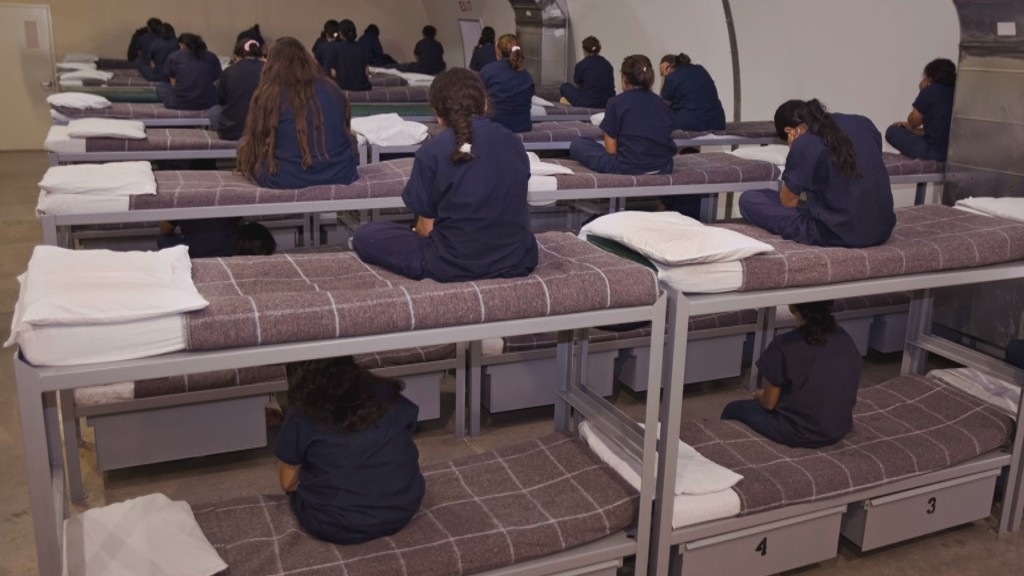What Are Immigration Detainees’ Legal Rights?

October 18, 2011
Share
When Antonio Arceo received a call that his wife, Roxana, had been detained on an immigration violation, he wasn’t sure where to turn. “I went around to all the jails where she could possibly have been held,” he told us, “and nobody would give me information.”
Arceo’s situation is all too common. We asked Mark Fleming, the national litigation coordinator for the National Immigration Justice Center, for some basic information about immigrants’ legal rights after they’re detained.
What are immigrants’ legal rights in an immigration detention facility?
In most situations, immigrants have a right to see an immigration judge for a hearing to see if they are eligible for relief to stay in the United States. Unfortunately, many are told by Immigration and Customs Enforcement [ICE] officials that they do not qualify for bond or any immigration remedy, but that advice is often erroneous.
At a minimum, many immigrants are eligible for “voluntary departure,” which is different than a deportation order and does not carry the same penalties, such as bars to returning to the United States and the possibility of criminal charges if the immigrant returns without permission.
Immigrants have the right to be represented by an attorney, but not at the expense of the government because they’re being held civilly, not criminally. Each immigration jail should have a free telephone service that permits immigrants to call an immigration attorney. The number to call should be posted in every jail pod near the telephones.
A number of legal service providers around the country will represent immigrants for free. An immigration attorney can also be useful in resolving problems an immigrant may encounter at the jail. Many immigration jails will also host periodic “Know Your Rights” or legal orientation presentations by local immigration attorneys and advocates, so detained immigrants should be sure to attend such a presentation.
How long can immigrants be detained?
It depends on the case. Many immigrants have the right to be released on bond and you can request a bond hearing with the immigration court even before your first scheduled hearing.
Unfortunately, if an immigrant fights his or her case, he or she might be detained for several months. But it is worth the effort to avoid a deportation order and its harsh consequences, which can include banishment from ever returning to the United States and the prospect of criminal charges if you re-enter without permission.
How does a detained immigrant’s family find out where he/she is being held? Or can they find out?
ICE hosts on its website a locator system for detained immigrants. There is an option to change the language at the top of the web page.
Family and friends should try to get the immigrant’s Alien Number, also known as an “A-Number.” It is typically an eight- or nine-digit number located on most documents the immigrant receives from ICE or the immigration court. It is also often located on the bracelet or other jail identification that the immigrant may have.
At the ICE locator website, the most effective way to locate an individual is by entering the person’s A-Number and country of birth. If you do not have the A-number, it is also possible to locate the individual by their first name, last name, country of birth and date of birth. You should try various spellings of the person’s name as it is often misspelled in the ICE system.
Who are immigrants’ advocates in the system?
The legal service providers listed on the free telephone service in each immigration jail are often immigrants’ strongest advocates. In addition, each jail should list a free contact number for each country’s embassy and consulate in the United States. Some countries are responsive to their citizens in U.S. immigration detention.
Religious groups who visit immigration jails play a vital role in addressing problems and concerns. Finally, family and friends are indispensable in advocating on behalf of immigrants caught up in the expansive U.S. immigration detention system.
For more information on immigrants’ rights in detention and the possible forms of immigration relief, below are links to the National Immigrant Justice Center’s legal orientation materials in English, Spanish, French, Mandarin and Arabic [PDFs].
Related Documentaries
Latest Documentaries
Related Stories
Related Stories
Explore
Policies
Teacher Center
Funding for FRONTLINE is provided through the support of PBS viewers and by the Corporation for Public Broadcasting, with major support from Ford Foundation. Additional funding is provided the Abrams Foundation, Park Foundation, John D. and Catherine T. MacArthur Foundation, Heising-Simons Foundation, and the FRONTLINE Trust, with major support from Jon and Jo Ann Hagler on behalf of the Jon L. Hagler Foundation, and additional support from Koo and Patricia Yuen. FRONTLINE is a registered trademark of WGBH Educational Foundation. Web Site Copyright ©1995-2025 WGBH Educational Foundation. PBS is a 501(c)(3) not-for-profit organization.





















